Hot Wallets: Definition, Safety, and Examples [2023]

crypto wallets
Hot wallets are a way of storing digital currencies and keeping them safe. Since crypto has become a popular investment and source of passive income, the need for secure storage is greater than ever.
If you’re looking for a way to store your cryptocurrency, why not consider every option and weigh out the pros and cons? In the end, you’re the one responsible for your digital assets and how you choose to store them. But where do you start?
In this article, we will discuss what hot wallets are, how they work, and more!
What are Crypto Wallets?
Crypto wallets are digital wallets that store cryptocurrencies such as Bitcoin, Ethereum, etc. They allow users to access and manage their digital assets on the blockchain.
In addition to storing digital assets, crypto wallets allow users to send and receive cryptocurrencies. To send cryptocurrency, you have to enter the recipient’s public wallet address and the amount of cryptocurrency they wish to send.
However, it’s important to note that users should take the necessary precautions to protect their wallets and digital assets, as the crypto market is susceptible to hacking and other security risks.
These wallets come in two forms: cold wallets and hot wallets.
Cold Wallets
Cold wallets are a type of cryptocurrency storage that’s offline, meaning not connected to the internet. This makes them less vulnerable to hacking attempts since they’re physical devices, such as USB drives, that store your private keys. By keeping your cryptocurrencies in a cold wallet, you have full control over your funds, and their safety is much higher.
Hot Wallets
Contrary to cold wallets, hot wallets are connected to the internet, making them prone to hacking attempts. Although they’re more convenient for frequent transactions, they’re less secure, and it’s recommended to keep small amounts of crypto in them if you use them on a daily basis. Still, it’s a convenient option for traders who require quick access to their funds.
Types of Hot Wallets
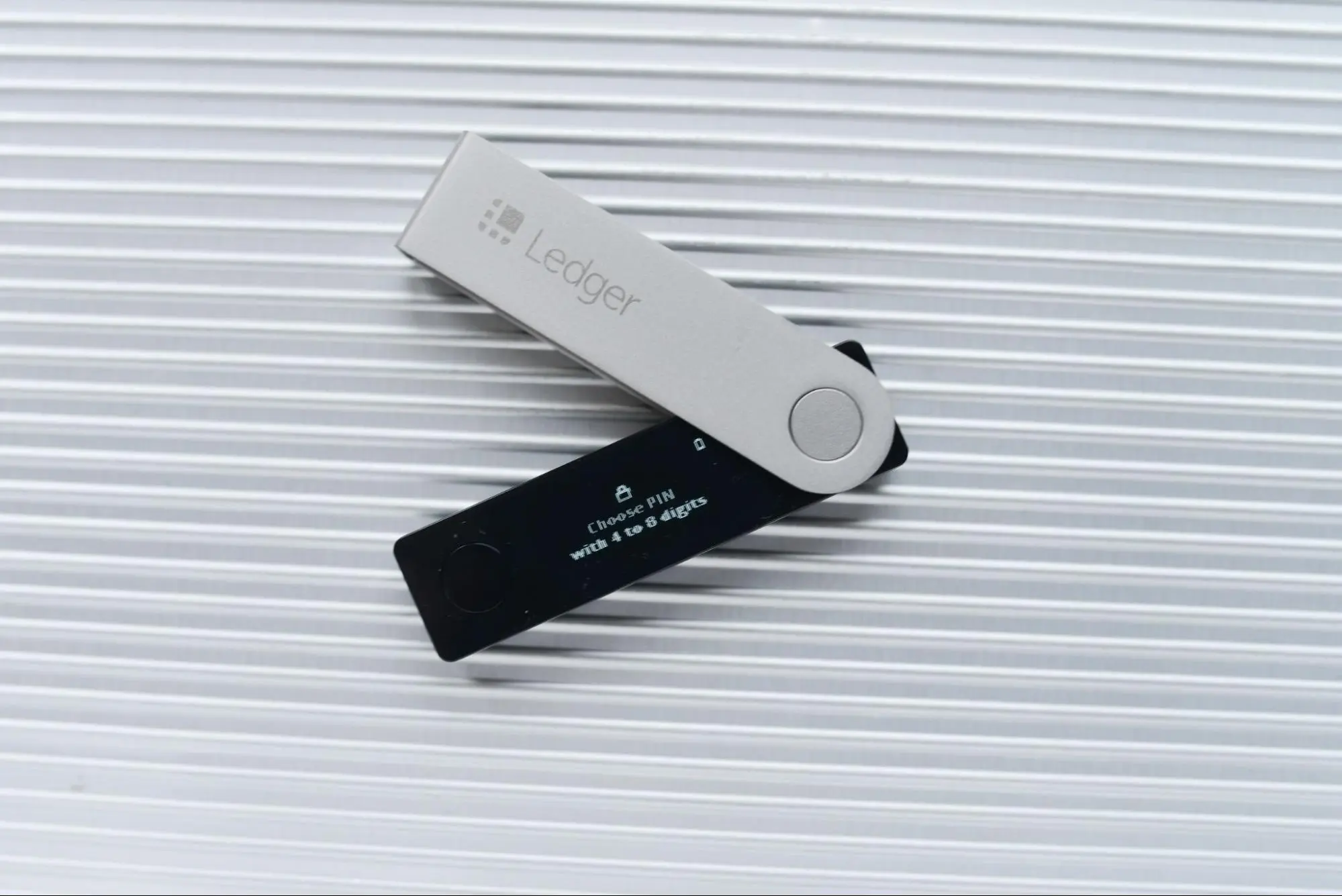
There are several types of hot wallets available, each with its own unique features and benefits. Some of the most common ones include:
- Mobile wallets. Mobile wallets provide a convenient way to access your crypto on the go, as they’re a type of hot wallet specifically designed for use on a smartphone or other mobile devices. However, as we mentioned above, they’re less secure than cold wallets, so make sure you keep only small amounts of cryptocurrency in a mobile wallet. Some popular mobile wallets include Coinomi, Mycelium, and Edge.
- Web wallets. You can access web wallets through a web browser, and cryptocurrency exchanges often offer this option. Any device with an internet connection can access them. The well-known web wallets are Blockchain.com, Binance, and Coinbase—wallets for desktops.
- Desktop wallets. Desktop wallets are computer software programs that you can download. They offer greater security and control than mobile and web wallets. They’re great for users who want a high level of security and who trade frequently. Some popular desktop wallets are Exodus, Electrum, and Armory.
- Exchange wallets. Cryptocurrency exchanges will often provide exchange wallets. They allow easy access to funds and are connected to the crypto exchange’s trading platform. Keep in mind that exchange wallet users don’t have full control over their private keys when using their wallets since they are hosted by a third party. Often used exchange wallets include Binance, Coinbase, and Kraken.
How Does a Hot Wallet Work?
Hot wallets work by storing a user’s private keys on a software-based platform that is connected to the internet. When a user initiates a transaction, the hot wallet creates a digital signature using the private key to confirm the transaction’s authenticity. The transaction is then recorded on the blockchain network, where it’s further verified and added to the blockchain ledger.
We mentioned that hot wallets are prone to hacking since they’re connected to the internet. That’s why two-factor authentication is important, along with being informed about any new changes to your wallet. You should be aware of the trade-offs between convenience and security when choosing a hot wallet and opt for one that suits your needs and preferences best.
Custodial and Non-Custodial Hot Wallets
Custodial hot walletsare wallets that third-party service providers manage. When a user creates an account with a custodial hot wallet provider, they’re entrusting the provider with the responsibility of managing their digital assets. The provider’s job is to manage your private keys and hold responsibility for your assets’ security. Wallets like Coinbase, Kraken, and Binance are custodial wallets.
Non-custodial hot wallets give users full control over their private keys. With this type of wallet, you’re the one who creates and manages your private keys, meaning you’re responsible for securing and storing your digital assets.
However, if your priority is security and control, then a non-custodial hot wallet such as Metamask, Coinbase Wallet, or MyEtherWallet might be the right choice for you.
How Safe is a Hot Wallet?
Hot wallets are not as secure as cold wallets because they operate online. Some of the potential risks when using them include:
- Vulnerability to hacking and other security risks
- Lack of full control over private keys when you’re using an exchange wallet
- Increased vulnerability to cyber-attacks because your hot wallet is connected to the internet
However, there are several safety measures to consider if you want to be sure your hot wallet is secure. For example, you can use two-factor authentication to add an extra layer of security to your wallet.
Additionally, users should avoid storing large sums of money in hot wallets and instead opt for cold wallets if they’re looking for long-term storage.
Cold Wallet vs. Hot Wallet

In terms of safety, many consider cold wallets a better and more secure option than hot wallets. They’re not connected to the internet, meaning there’s virtually no chance to hack them. While you have to sacrifice convenience for enhanced security, it’s worth it.
Hot wallets offer accessibility and convenience for their users. If you trade frequently, you’ll probably opt for a hot wallet because it's easy to access. However, there’s a high chance of having your wallet hacked, as it has to be connected to the internet, so avoid storing large amounts of funds on it.
In the end, users who prioritize security over convenience should opt for cold wallets, and users who require frequent access to their funds may prefer hot wallets despite the added security risks.
7 Best Hot Wallets
In this section, we will discuss seven of the best hot wallets available, each with its own unique features and benefits.
#1. Trust Wallet
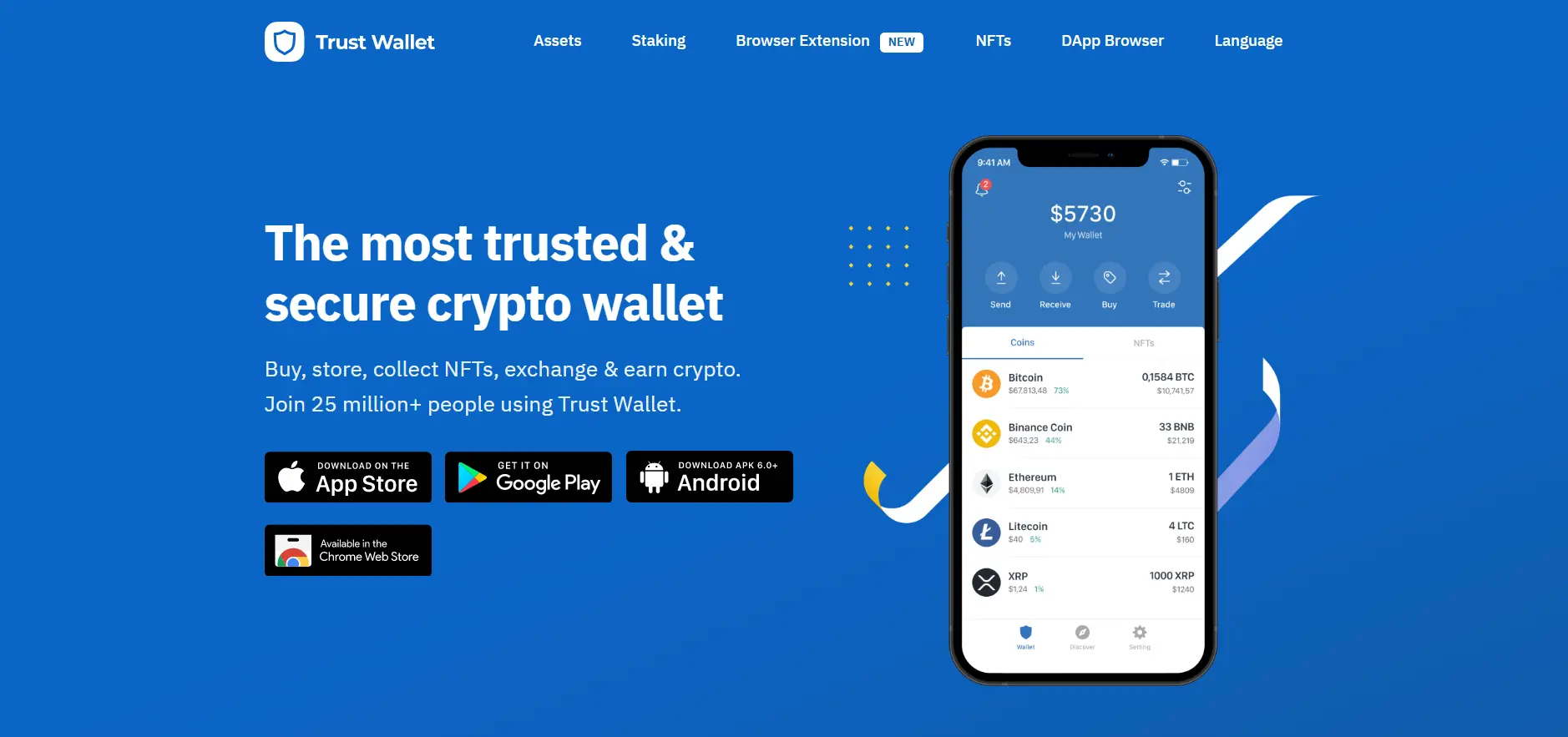
Trust Wallet is a popular hot wallet among users who manage Ethereum assets through a mobile app. It supports over 160 cryptocurrencies and offers enhanced security features. Some of them include biometric authentication and secure passphrase recovery.
Trust Wallet has an attractive design and user experience that make it easy to use right away. The app allows you to store private keys directly on your device. This means that even if your private keys get stolen or lost, there isn’t much damage done—all your funds are still safe in their original wallets because they haven’t been moved anywhere else.
You can also use Trust Wallet as an exchange where you can buy crypto with fiat currency through their partnership with Changelly or ShapeShift (the feature is called “Instant Exchange”). Trust Wallet even has its Trust Wallet Token (TWT).
TrustWallet offers two-factor authentication, adding an extra layer of protection when interacting with DeFi apps.
#2. Coinbase Wallet
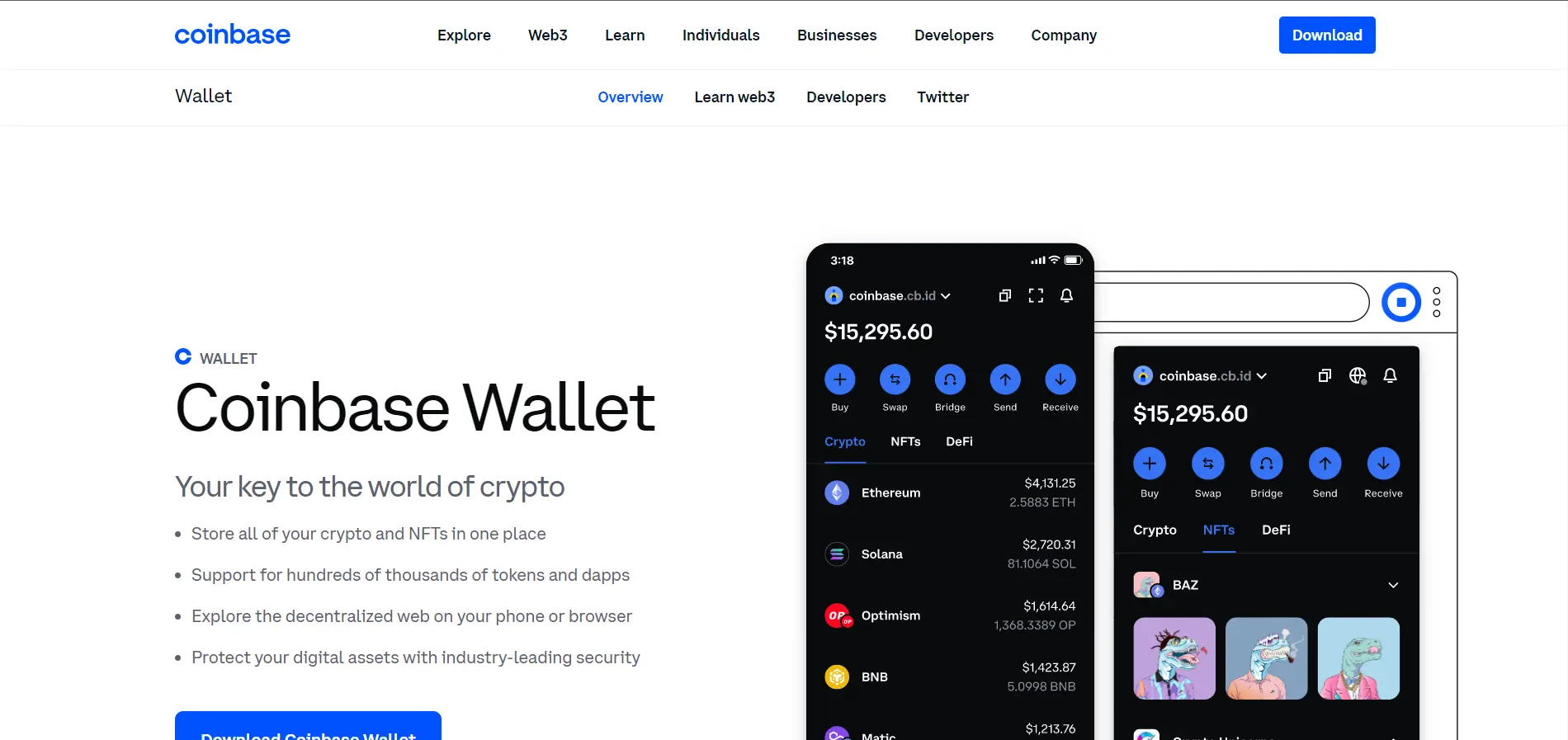
Coinbase Wallet is a popular hot wallet that provides an integrated mobile wallet with the Coinbase Exchange, making it easy to buy and sell crypto even for beginners. The wallet offers great security features such as two-factor authentication, secure passphrase recovery, and biometric authentication.
The wallet is available for both iOS and Android, and you can download it for free from the app store. As a CoinbaseWallet user, you can send, receive, or store Bitcoin (BTC), Ethereum (ETH), Cardano (ADA), and many other popular cryptocurrencies, including NFTs. However, keep in mind that there are transaction fees when sending or receiving crypto.
Additionally, one of the significant Coinbase Wallet advantages is its security reputation. The company has an excellent track record of protecting its users' funds, like by using biometric authentication and making their wallets non-custodial. This means you, as a user, can have full control over your private keys when you want to access your funds.
#3. Atomic Wallet
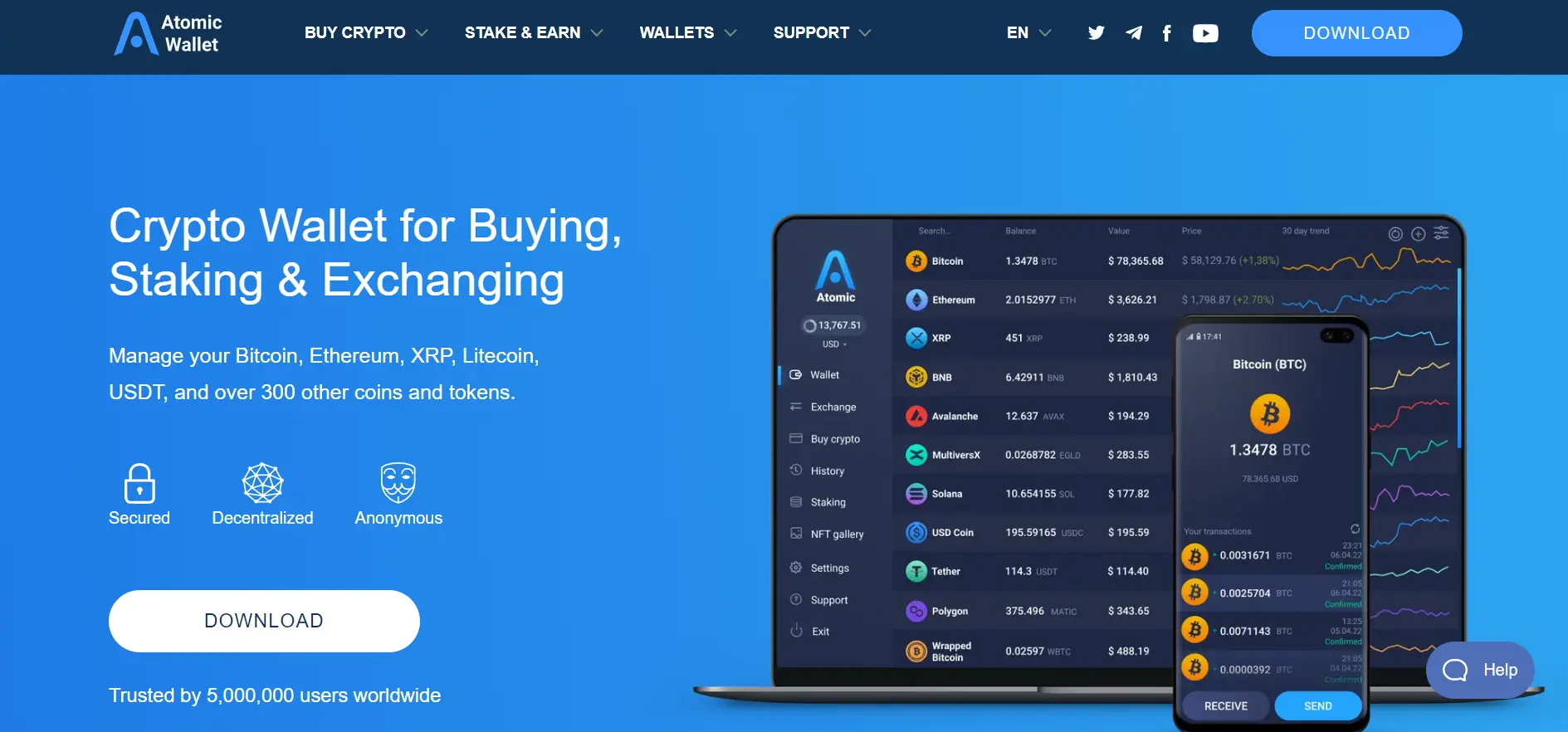
Atomic Wallet is a desktop and mobile wallet that has a built-in exchange feature, allowing you to quickly and easily trade crypto. It enables you to seamlessly send and receive Bitcoin, Litecoin, and Ripple and supports 500 more cryptocurrencies you can choose from.
It supports “Atomic Swaps,” which enables peer-to-peer crypto trading. It greatly reduces the risk of manipulation and increases user privacy. Atomic Swaps use smart contracts to enable secure exchanges, additionally reducing the risk of hacking or fraud.
Atomic Wallet also has an integrated Cryptonator exchange where you can buy cryptocurrencies with your credit card or cash. The wallet supports over 20 languages, making it more accessible than other wallets with a user-friendly interface everyone can use seamlessly.
#4. Exodus Wallet
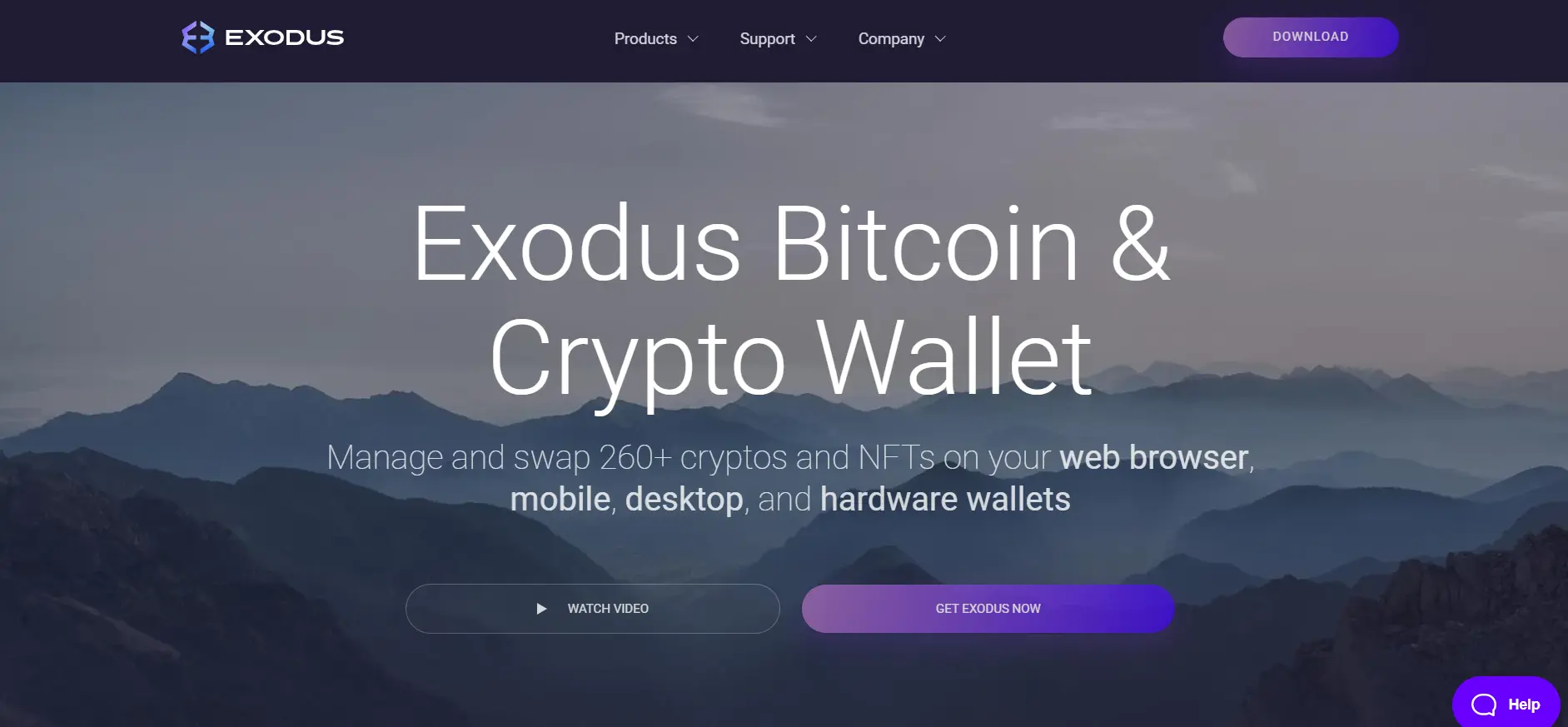
Exodus Wallet is one of the most popular crypto wallets and supports over 100 cryptocurrencies. Like Atomic Wallet, it has a built-in exchange feature, is free to download and use, and offers enhanced security features like hardware wallet integration. The user interface is simple, so even beginners can easily navigate through it.
With Exodus, you can exchange currencies within the wallet itself without having to use an external exchange like Binance. This means you don’t have to worry about exposing yourself to hacks or scams when trading on these exchanges.
Because of its built-in exchange feature, the wallet is a popular choice for novice crypto investors. It’s easy to use, and you can quickly learn how to trade.
#5. Ledger Live

Ledger Live is a desktop and mobile hot wallet that supports over 1,500 cryptocurrencies. It has a user-friendly interface where you can manage your cryptocurrency holdings. The Ledger Live app is available for both iOS and Android, and you can download it from the app store. You can manage your funds in real-time from any device with an internet connection.
Ledger Live has a built-in ledger hardware wallet that provides extra protection for your funds, which is great for secure cryptocurrency management. This means you can manage your crypto holdings on your desktop or mobile device while your private keys remain safely stored in your hardware wallet.
Additionally, Ledger Live also offers two-factor authentication, a secure PIN code, and the possibility of creating multiple accounts within one wallet.
#6. MyEtherWallet (MEW)

MyEtherWallet is a web-based wallet that allows you to manage either Ethereum or ERC20 tokens. The wallet supports the Ethereum blockchain, meaning anyone who wants to hold their tokens on an exchange or use them for payments online can use them.
The wallet has a recognizable feature of integration with hardware wallets like Ledger and Trezor, which adds to the security of your wallet. Like Ledger Live, it includes two-factor authentication, hardware wallet integration, and more options to keep your cryptocurrency safe.
Additionally, MEW is one of the most popular wallets in the Ethereum community since it’s decentralized, which was the goal when it was launched back in 2015. Its friendly interface and security are what keep customers faithful to its services.
#7. Safepal DeFi Wallet

Safepal DeFI Wallet is a multi-chain hardware wallet that lets you store, send, and receive various types of cryptocurrencies. It works great with both top cryptos like Litecoin (LTC) and less popular ones like Uniswap and Dogecoin. Additionally, it’s compatible with over 10,000 cryptocurrencies, meaning you don’t need to switch between different wallets to own multiple currencies.
The wallet is decentralized, meaning it doesn’t rely on any central server or authority to function. You can use the app without having to share your private keys with anyone—you remain in control of your funds all the time. Safepal is a reputable, secure, and user-friendly hot wallet that is great for both new and experienced investors and traders.
Safepal DeFI offersnon-custodial functionality; instead of storing tokens on an exchange, they’re stored directly in the mobile app on your phone’s local storage device (SD card). This makes buying and selling crypto a lot easier for beginners. This feature gives users full control over their private keys and funds.
Key Takeaways
By now, you should know that hot wallets are a type of software-based digital wallet that stores crypto assets. They’re connected to the internet and enable users to access their cryptocurrency quickly, which is a convenient option for people who trade on a daily basis.
Hot wallets are less secure than cold wallets, but with several safety measures, such as two-factor authentication and avoiding storing large sums of money on your hot wallet, you can avoid cyber attacks.
Owning a hot wallet can be a great option for traders, as long as they’re mindful of their privacy and make sure they’re keeping their private keys safe. The wallets we mentioned are a top choice, mainly for their user-friendly interface and proven strong security measures. Whichever you choose will serve as a great tool for storing your cryptocurrency.
Hot Wallet FAQ
Can hot wallets be hacked?
Yes, hot wallets are prone to hacking and other security risks as they are connected to the internet. Users should take the necessary precautions to protect their wallets and digital assets, such as using two-factor authentication and avoiding storing large sums of money on hot wallets.
What kind of crypto wallet is the best?
The best type of crypto wallet depends on your priorities and preferences. Cold wallets, such as hardware wallets, are generally considered to be the most secure because they are offline and less susceptible to hacking and other security risks.
However, they may be less convenient to use than hot wallets, which are connected to the internet and allow for faster access to your funds.
What is the safest crypto wallet?
A cold wallet, preferably a hardware one, is the safest type of crypto wallet. Offline wallets are far less susceptible to hacking and maintain a high-security level.
How do crypto wallets work?
Crypto wallets store a user’s private keys, and you can use them to access your digital assets on the blockchain. When a user initiates a transaction, the wallet creates a digital signature using the private key to confirm the transaction’s authenticity.